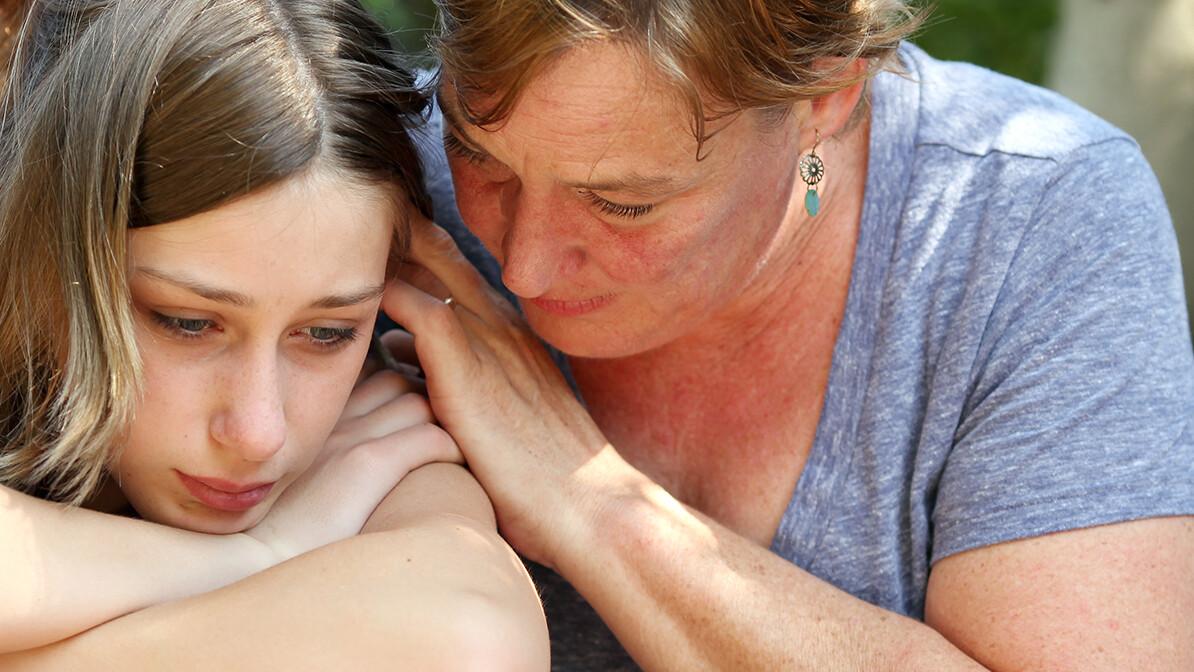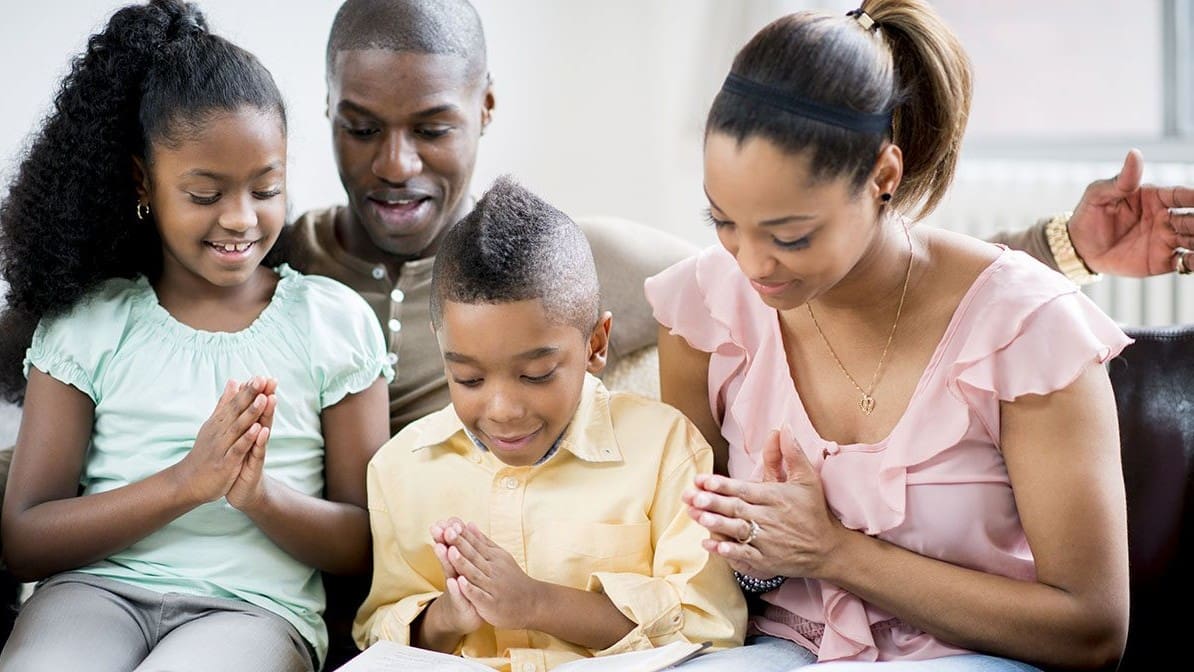
Shaken When Your Parents Divorce

Debra Burns: Teenagers I’ve met over the years have said they don’t want to marry at all because they don’t want to risk getting divorced. After 27 years of student ministry, I’ve had a burden to help students cope with crises in their lives. When a family breaks up, this is a major crisis for a young person to deal with on their own. Since working at Christ’s Church in Jacksonville, Florida, where I am the Community Care Pastor, I noticed there was a need for support groups for teenager. Divorce Care offers support for adults and there’s Divorce Care for kids 12 and under, but there was nothing available for 13- to 18-year-olds. It breaks my heart that teens are left out and I created this workbook to meet their needs.
CVB: Why do you think that is the case?
Debra: Most people might think it’s a challenge to get students to want to come to a support group and talk. Sometimes shame is involved or it’s embarrassing or awkward. Girls like talking; guys not so much. Without a safe place to vent, students process internally or don’t process their feelings at all. Our groups in Jacksonville have been very successful and exceeded the expectations of the students and their parents.
CVB: Right.
Debra: A common thread with high school is their parent’s divorce is so prevalent that no support is offered. Their friends say things like, “Big deal. Join the club. My parents are divorced too. Get over it.”
CVB: That may be on the outside, but that’s not what’s going on inside.
Debra: Exactly.
CVB: So what does your book do to fill that gap?
Debra: The 13 chapters go along with the same 13-week program that Divorce Care offers the adults. A parent can bring their teenager to a group at the same time they are going to their meeting. When we started offering this group six years ago, the teenagers would show up and not know what they were coming to because their parents didn’t tell them. So, the first week was focused on getting to know each other and build rapport.
The second chapter asks, “Are you feeling overwhelmed?” It helps them discover what their felt need is. It asks, “Is there a problem?” A 17-year-old boy was coming on his own, driving 30 miles because he couldn’t sleep at night. His Christian parents had gone through a divorce and he was torn up about it. The chapter dealt with being overwhelmed, which was one of the factors causing him sleepless nights, losing focus at school, not wanting to hang out with his friends, and things like that. He had never connected these things to the divorce. Right away he saw the connection.
The book also eases into grief. “You’ve lost something. How does that feel? How do we process grief?” There is more support for kids who loses a parent to cancer than there is for divorce. We want to acknowledge that there is a severe loss here. Your family has been broken. Your expectations have been broken. For a child they feel the unconditional love and trust has been broken too. If mom and dad can fall out of love with each other, that means they can fall out of love with me. And that’s not true. That’s where we have to reestablish their source of love comes from God.
That’s why chapter five shares the Gospel in a clear way so that by week five, you’ve built that trust. You can plant some seeds no matter where they are spiritually, because sometimes they are angry with God. They blame God. Even if they don’t have faith in God, we respect where they’re at. We present God’s love and leave the door open for more seeds to be planted over the next few weeks. The group leaders continue to plant seeds, answer questions, and continue the spiritual conversations.
CVB: One of the big things that I see as damaging in a divorce is the shattering of what was expected for the future – what things might have been. That is one of the most devastating things. So how do you speak to that and help a teenager through it. It really is a scary thing to lose hope.
Debra: Oh, I agree. There are very few resources available that help teens deal their parents splitting up, but one thing I noticed was they were not really giving hope about the future. I have a chapter that asks, “Will I ever have a family again?” We talk about the blended family, how those dynamics work, and what to expect, because every family is different.
In chapters 12 and 13 we close with information about real love versus counterfeit love. What does healthy dating look like? What does unhealthy dating look like? How do you know if he’s or she’s the one? Then the book finishes with a positive message about marriage. What is God’s purpose for marriage? How do we have a healthy marriage? What’s the role of a godly husband or wife? What does it mean to submit? How do we handle conflict?
My goal is to equip teens with tools so they can break the cycle of broken relationships. Many teenagers don’t want to get married because they don’t want to go through the pain of divorce. I want to flip the switch and help them see the positive side and purpose of marriage. This interactive workbook gives them practical tools and biblical wisdom for a healthy relationship and give them hope.
CVB: How did you determine how this would be organized?
Debra: We’ve been offering this program for six years, so it’s grown through trial and error. Over the last year we added extra material for the teachers or facilitators. Let’s say your group has an hour and a half and the teenagers are very talkative, and you don’t even get through all the material. That’s a great problem to have. If there’s not enough talking and you need more material, every chapter has bonus material called “Get This 2.0.”
We cover topics like:
- How to cope with emotions like depression and anger.
- How to forgive those who hurt you.
- How to handle conflict and communicate with your parents.
- How to get along with others in a blended family.
CVB: You’ve been talking about your group. What about a family that may be rural, or may be in an isolated situation, or maybe they just can’t find a group? Is this something that one of the parents could do with their kids?
Debra: There’s a leader’s guide within the book. The answer key is provided along with the tips on how to lead a teenager through it. A parent, grandmother, guidance counselor, teacher, or mentor could pick up the workbook in a bookstore or online. There are a lot of adults who work with teenagers who care about them and want to help them through this struggle. Any adult who loves teenagers and wants to help them can use this workbook and help a teenager.
CVB: What if you do have a youth group in your church, or a young adult group, maybe you have a divorce care ministry, but you don’t have this element for the teens? Where can leaders find this book? Is there a corresponding website?
Debra: There are over 33,000 churches that offer Divorce Care nationwide. I really want to let them know that this resource is available. It will be available wherever books are sold and on Amazon. You can find out more at my website, www.DebraBurns.net.
…
Order your copy of Shaken: What’s Next When Your Parents Are Splitting Up? by Debra Burns
Trending Now
Sign up today for your Inspiration Today Daily Newsletter
Supercharge your faith and ignite your spirit. Find hope in God’s word. Receive your Inspiration Today newsletter now!
Dr. Craig von Buseck
Dr. Craig von Buseck is an award-winning author. Learn more at vonbuseck.com
Related Articles
April 18, 2024
Talking to Your Children About Tragedy
Watching my children hurt is one of the hardest things for me as a parent. There are moments where…
April 17, 2024
Engage in Family Prayer to Impact Lives
Grow closer as a family through prayer while helping your children to become prayer warriors and…
April 17, 2024
Fields of Grace: Passion, Cows, and Quitters
Excerpt taken from Fields of Grace: Sharing Faith from the Horse Farm by Cara Whitney Chapter 2…
Next Steps To Strengthen Your Walk
Submit A Prayer Request
We are here for you. Simply click on the button below to reach us by form, email or phone. Together we will lift our hearts and voices with you in prayer.
Partner WIth Us
Sow a seed of faith today! Your generous gift will help us impact others for Christ through our global salvation outreach and other faith based initiatives.
Inspiration TV
Watch Christian content from your favorite pastors, christian movies, TV shows and more.






